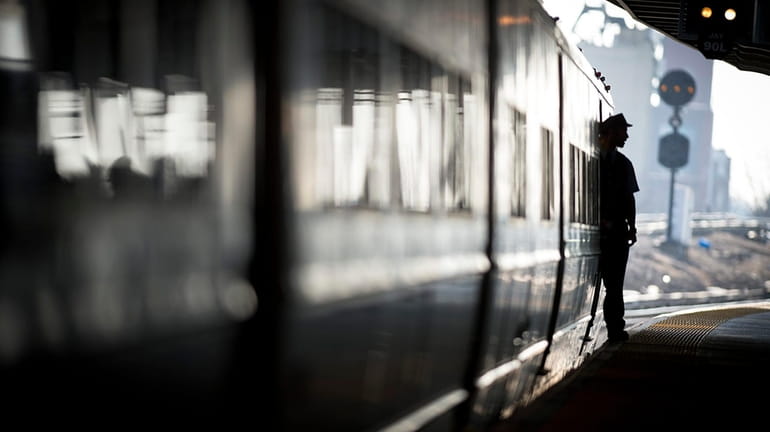MTA continues to wallow in mismanagement

The MTA has yet to detail why record overtime is appropriate or to describe who's earning how much. Credit: Newsday/J. Conrad Williams Jr.
Despite pledges of reform and promises of transformation, the Metropolitan Transportation Authority appears to be a never-ending textbook case of mismanagement.
Consider its latest ill-advised undertaking: the effort to charge runners — even if indirectly — to cross the Verrazzano Bridge during the New York City Marathon. After decades of runners using both decks of the bridge for the marathon's spectacular start, the MTA suggested that marathon sponsor New York Road Runners pay the authority $750,000, the estimated loss of toll revenue from the closure.
It was nothing more than a tone-deaf cash grab. Soon enough, Gov. Kathy Hochul saw it for the disastrous public relations move that it was, asking the MTA Thursday to “fix this mess.” She's right. MTA officials have made the case that congestion pricing is not about money, but a genuine effort to loosen traffic-clogged roadways and improve air quality. No one can make that case for charging runners, walkers and wheelchair racers.
Also consider the MTA's inability to control its overtime costs. Last year, the authority spent a record $1.42 billion on overtime, higher than even 2018, when investigations and indictments ensued. New York City Transit spent the most. But $218 million came from the Long Island Rail Road — an increase from 2022, though slightly below budget.
Some overtime is necessary, especially since the authority has 3,669 unfilled budgeted positions, so current employees work more hours. Sometimes, overtime may make sense; it can be less expensive than hiring someone who requires salary and benefits. But the MTA has yet to detail why record overtime is appropriate or to describe who's earning what. The editorial board filed a Freedom of Information request; the MTA said it would release the data “when the numbers are available.”
That just adds to signs that mismanagement is at work. How could the numbers, which might justify their reasoning, not be available now?
Even more troubling, the MTA has yet to implement promised reforms. That includes biometric readers that require workers to scan their fingers to document schedules and locations, a practice stopped during the pandemic and never restarted. MTA officials told the editorial board they would need to negotiate that with the unions. They should get it done.
All of this comes as the MTA finally released a request for proposals for a master developer to add retail and dining to Grand Central Madison. That should have happened long before the terminal was completed, even before the pandemic. One problem back then: No one trusted their expected completion date on the long-delayed project. MTA officials say they'll get a better deal now — but their customers lose out, with at least another year of waiting to come.
If the MTA wants the trust and support of riders and advocates, especially on fare hikes, new tolls and other changes, it has to show it can manage its own shop. Right now, it's doing everything to show it can't.
MEMBERS OF THE EDITORIAL BOARD are experienced journalists who offer reasoned opinions, based on facts, to encourage informed debate about the issues facing our community.
